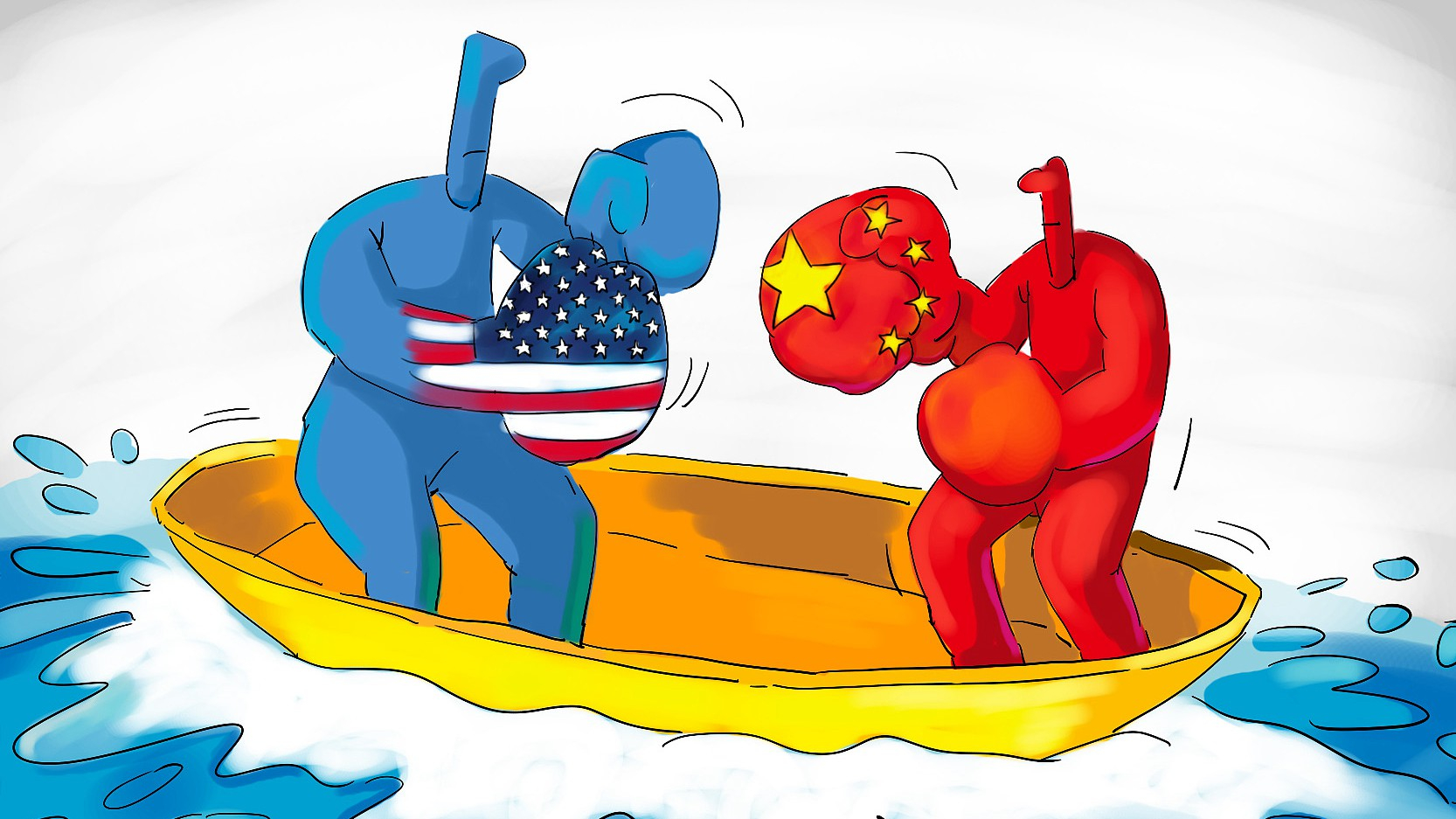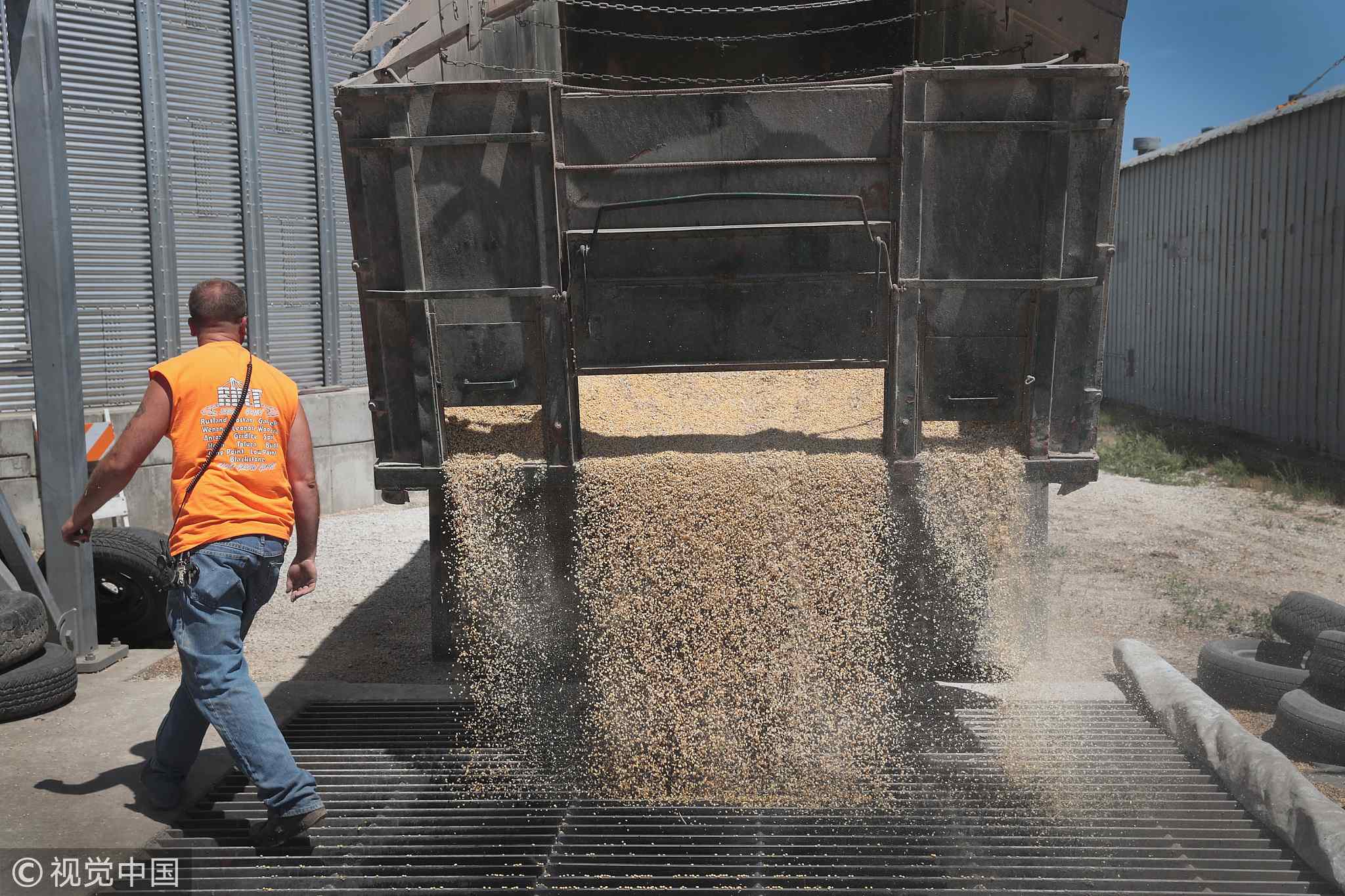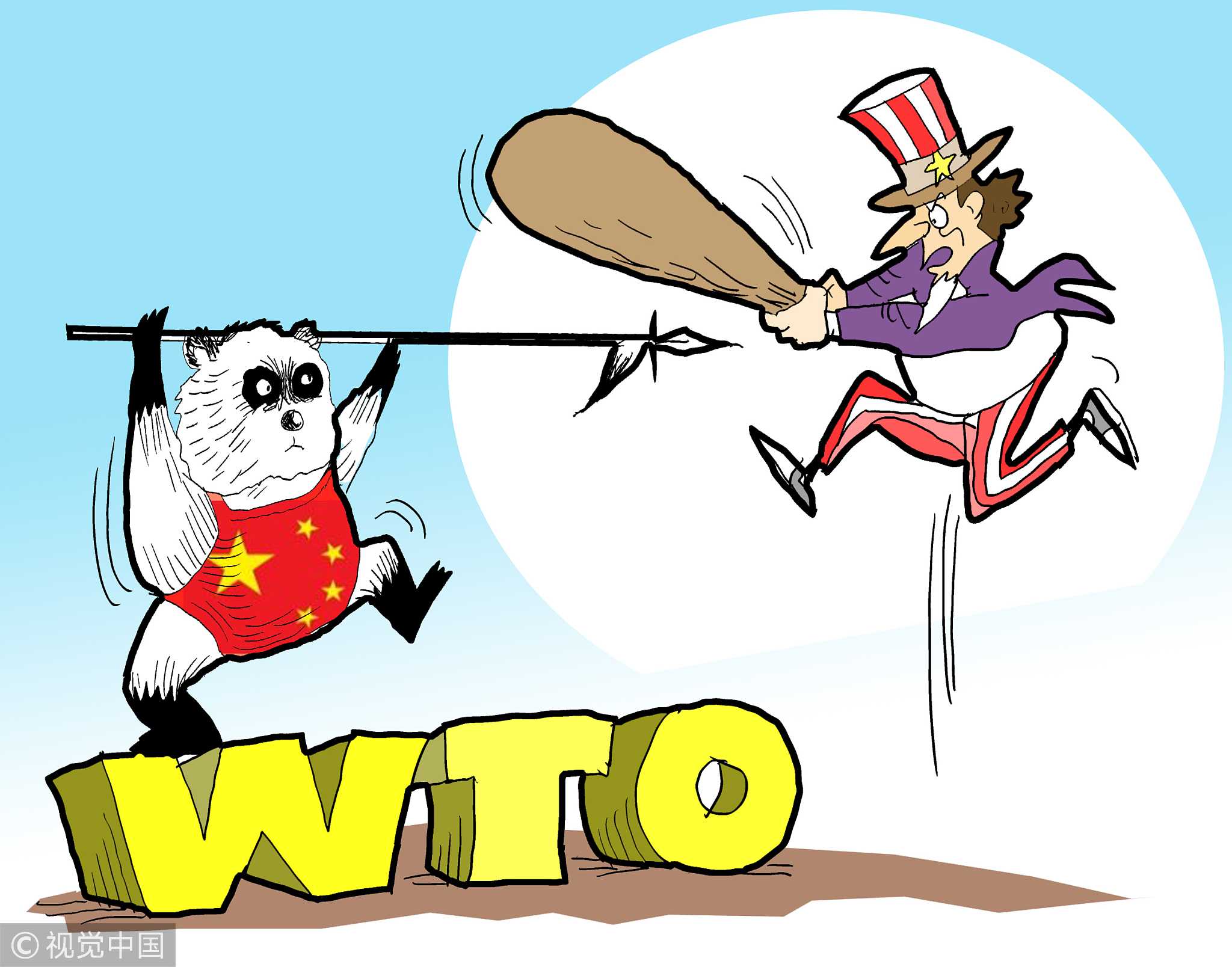
Opinions
23:14, 27-Jun-2018
Opinion: War or peace on trade?
Updated
23:01, 30-Jun-2018
John Gong

Editor’s note: Dr. John Gong is a research fellow at the Charhar Institute and a professor at the University of International Business and Economics of China.
The prospect of a real trade war between the US and China is getting closer by the day. This is particularly worrisome as there has been no report at all that Beijing and Washington are actually talking. I guess the negotiating teams on both sides, like a strained couple for too long, are just tired of bickering, to the extent of running out of words. Across the table, they have said all that they have to say and offered all that they have to offer.

Michael Kuster unloads soybeans at a Ruff Bros grain elevator in Blackstone, Illinois, US, June 13, 2018. /VCG Photo
Michael Kuster unloads soybeans at a Ruff Bros grain elevator in Blackstone, Illinois, US, June 13, 2018. /VCG Photo
That is probably an accurate characterization of the current situation when Wilbur Ross left Beijing on June 3 to report to his boss after days of tough negotiations. Trump has been busy hobnobbing with DPRK leader Kim Jong Un in Singapore of late. Now it is the turn on China. The ball is squarely on Trump to decide if he is going to really effectuate tariffs on the 50 billion dollars worth of Chinese exports to the US. Only a week is left for him to make a decision, a decision on war or peace with China – on trade. The answer is going to arrive on July 6. That day would go down in history as the beginning of the end, or the beginning of a new beginning.
Honestly, I am not optimistic, given Trump’s record on trade with American allies in Europe and its northern neighbor. Other than the American trade deficit problem we share with the Europeans, which by the way Trump perennially calls it a loss, there are those around him and on Capitol Hill who are concerned about corporate China’s rapid ascendance in technology and innovation. And they think the tariff tool can somehow thwart Chinese scientists and engineers using their brains? Someone, please explain to me the logic here.

VCG Photo
VCG Photo
But there is yet a larger context underlying Trump’s trade war that is merely one dimension of a likely wholesale shift in America’s China policy. This shift is rooted in America’s total disillusion with China’s growth path after its accession to the WTO, as summarized in Campbell and Ratner’s paper, “The China Reckoning: How Beijing Defied American Expectations” in the recent issue of the journal, Foreign Affairs. In their words, China didn’t develop based on the trajectory as envisioned at the time of its accession to the WTO and there is no hope to see if it ever will get closer to that trajectory.
This is pure hubris, of course. In the eyes of disciples of this line of thinking, the Washington consensus is the only path to economic success, and anything else borders on heresy. As a result, America needs to shift gear in dealing with China, a shift towards more constructive confrontation than engagement. I have even heard worse – some folks from Washington think tanks are advocating a total decoupling of economic ties with China. They want to put 1.3 trillion dollars on the chopping board – nearly 800 billion dollars in trade flows across the Pacific plus corporate America’s 500 billion dollars in business interests in China.
That is very sad. However, pretrial settlements in America are usually reached at the eleventh hour on courthouse steps. We have a week left before July 6. Let’s pray that a miracle will happen.
But let me say that even if the bad news arrives, it is not the end of the day. Historically, tariffs in such kinds of situations introduced by US presidents rarely lasted over three years. There will be contested at the WTO. Maybe it is not too bad to see things get worse before they get better.

SITEMAP
Copyright © 2018 CGTN. Beijing ICP prepared NO.16065310-3
Copyright © 2018 CGTN. Beijing ICP prepared NO.16065310-3